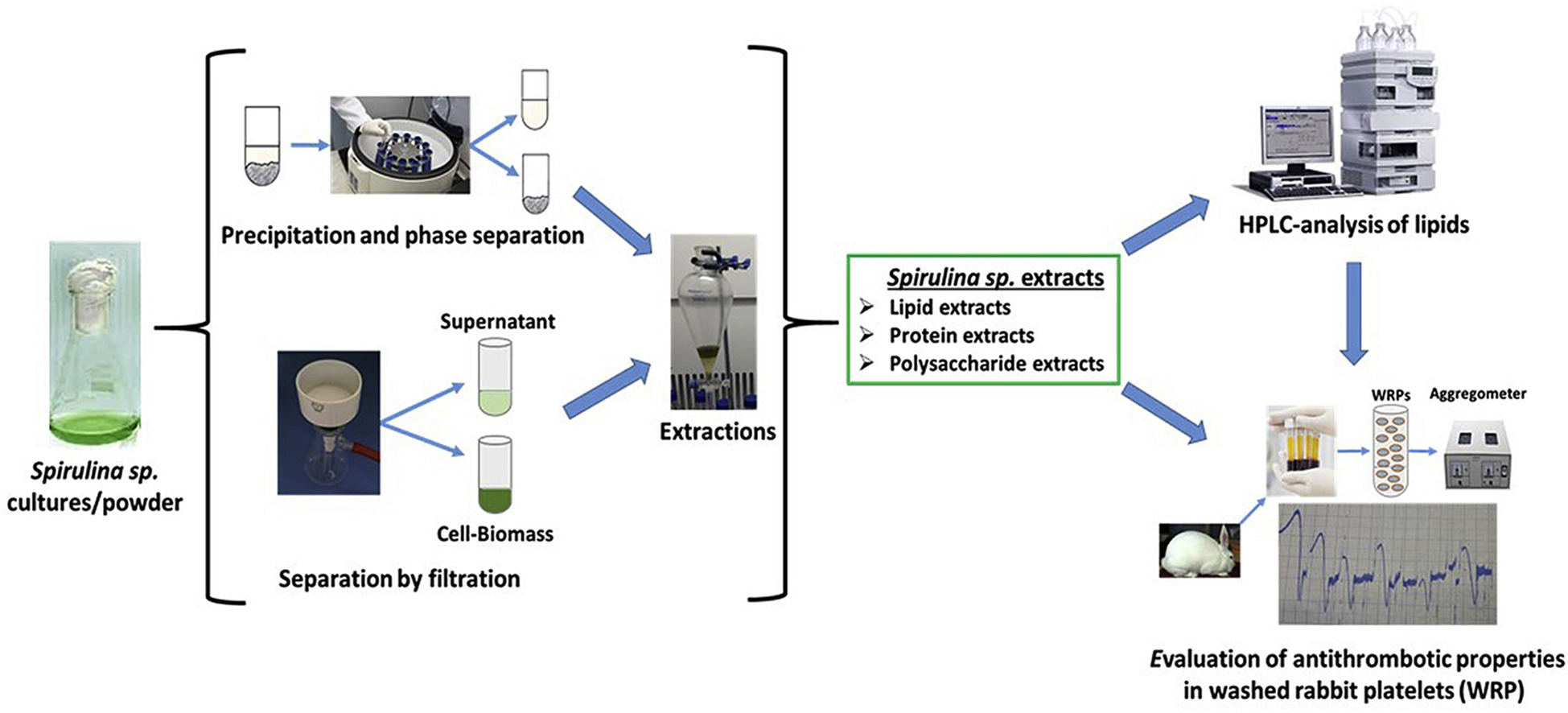Antithrombotic properties of Spirulina extracts against platelet-activating factor and thrombin
Highlights
- Spirulina extracts showed strong antithrombotic properties with washed rabbit platelets.
- Spirulina lipid extracts strongly inhibited platelet activating factor (PAF) and thrombin.
- Spirulina lipid fractions of glycolipids and PAF-like phosphatidylcholines were the strongest ones against the PAF-pathway.
- Spirulina polysaccharide extracts, protein-extracts and especially phycocyanobilin, also inhibited strongly PAF and thrombin.
- More research is needed to explore the potential and safety of Spirulina components as nutraceuticals.
Abstract
Spirulina (Arthrospira maxima) components have shown several health-benefits, including immunomodulatory and anti-inflammatory properties. Even though a few studies have examined the effects of some Spirulina-derived ingredients on platelets, none studied the effects on platelet aggregation induced by inflammatory and thrombotic mediators, namely platelet-activating actor (PAF) and thrombin. In the present study, the antithrombotic properties of compounds extracted from Spirulina, namely phycocyanobilin (PCB), phycocyanin-protein, polysaccharides (PS) and lipid extracts, but also of bioactive HPLC-separated lipid-fractions, were assessed in washed rabbit platelets (WRP) activated by PAF and thrombin. All extracts showed strong anti-PAF and anti-thrombin activities in WRP. PCB showed the strongest inhibitory effects on PAF/thrombin-induced platelet aggregation, with a stronger anti-thrombin effect, followed by the relative strong anti-PAF inhibitory effects of the total lipid extracts. HPLC-separation of Spirulina lipid extracts into lipid subclasses’ fractions showed that specific polar lipid fractions of glyco-lipids and PAF-like phosphatidylcholine moieties exhibited the strongest anti-PAF effects. Some of these lipid-fractions and PCB, when assessed at higher concentrations on WRP showed also an anti-PAF agonistic effect, with the PS extract exhibiting the strongest platelet-aggregatory effect. In conclusion, the results suggested that Spirulina seems to be a sustainable source of bioactive compounds with strong anti-PAF and anti-thrombin properties, and thus a potential candidate for developing food supplements and nutraceuticals against inflammation, thrombosis and related disorders. However, more studies are needed to explore the potential and safety of further use of Spirulina.
Graphical abstract

